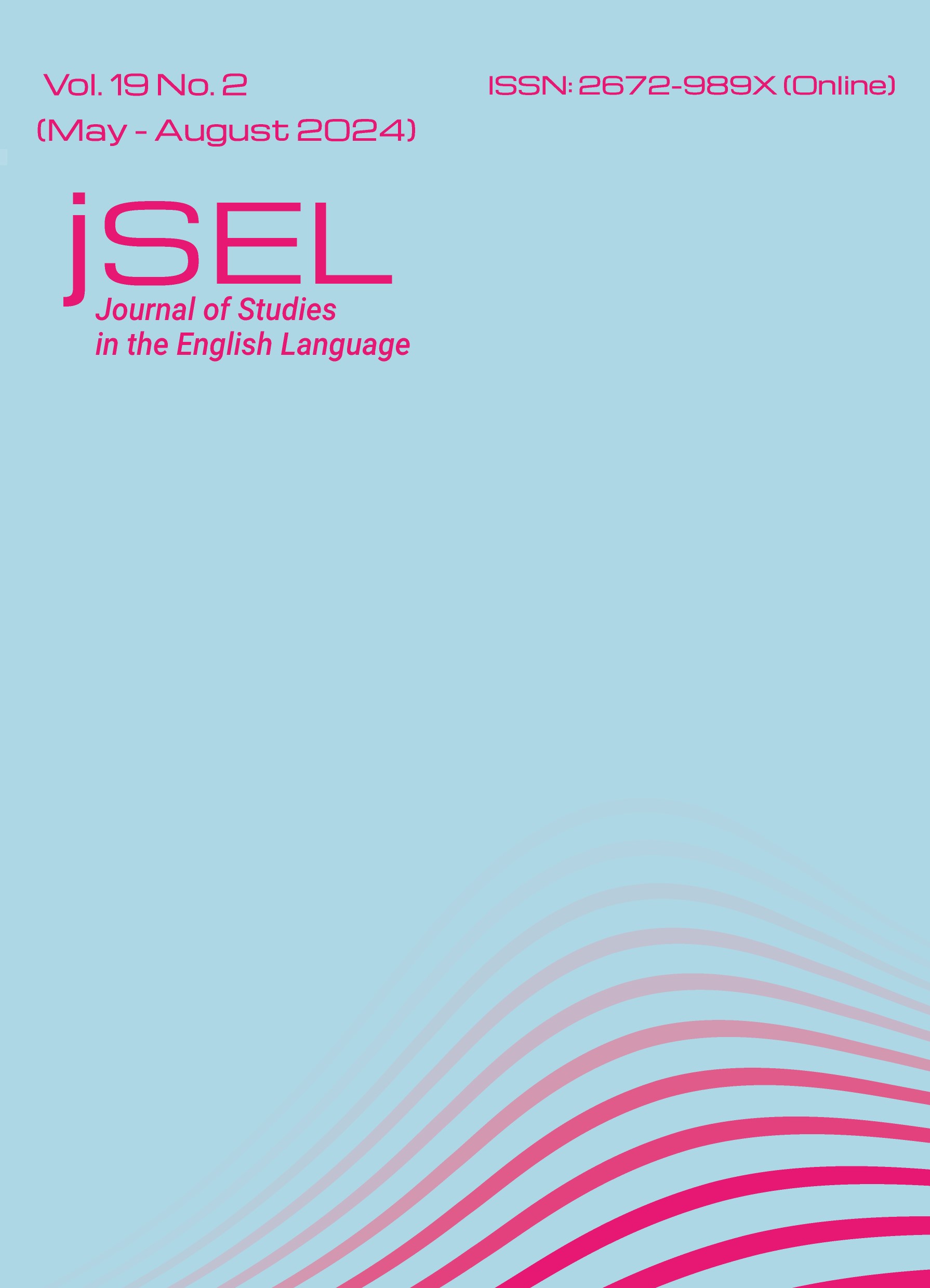Ecological Consciousness in Contemporary American Science Fiction: Posthuman Subjectivity and the Paradox of the Hyperreal
Main Article Content
Abstract
This article examines representations of human and nonhuman subjectivity in Ray Bradbury’s The Veldt (1950) and Philip K. Dick’s I Hope I Shall Arrive Soon (2013), and Ernest Cline’s Ready Player One (2011) through the lens of environmental criticism. Specifically, it traces how the texts’ representations of the hyperreal—a condition where simulated reality replaces the real one—lead to an expansion of human subjectivity to include the nonhuman other, whether organic or mechanical. The article argues that these stories highlight the dangers of the human self as separate from the nonhuman world. Such detached subjectivity results in a misconception of human control over nature and technology. My analysis of the texts suggests that the overwhelming impacts of the hyperreal, closely tied to images of nature, challenge and eventually debunk the notion of human superiority. Ultimately, these literary texts promote the construction of posthuman subjectivity, prompting the characters to realize that their human autonomy cannot exist in isolation. This article also suggests that the underlying trope of posthuman representations reflects an ecological consciousness in contemporary American science fiction.
Article Details

This work is licensed under a Creative Commons Attribution-NonCommercial-NoDerivatives 4.0 International License.
Authors who publish with this journal agree to the following terms: Authors retain copyright and grant the journal right of first publication with the work simultaneously licensed under a Creative Commons Attribution License that allows others to share the work with an acknowledgement of the work's authorship and initial publication in this journal. Authors are able to enter into separate, additional contractual arrangements for the non-exclusive distribution of the journal's published version of the work (e.g., post it to an institutional repository or publish it in a book), with an acknowledgement of its initial publication in this journal. Authors are permitted and encouraged to post their work online (e.g., in institutional repositories or on their website) prior to and during the submission process, as it can lead to productive exchanges, as well as earlier and greater citation of published work (See The Effect of Open Access).References
Ayres, R. U. (2021). The history and future of technology: Can technology save humanity from extinction? Springer International Publishing. https://doi.org/10.1007/978-3-030-71393-5
Barlow, A. J. (1988). Reality, religion, and politics in Philip K. Dick’s fiction (Publication No. 8815061) [Doctoral dissertation, The University of Iowa]. ProQuest Dissertations & Theses Global.
Baudrillard, J. (1983). Simulations (P. Patton & P. Beitchman, Trans.). Semiotext(e).
Bradbury, R. (1950). The veldt. Gothic Digital Library.
Bono, J. J. (2018). Science studies and cultural studies. In S. Meyer (Ed.), The Cambridge companion to literature and science (pp. 156-175). Cambridge University Press. https://doi.org/10.1017/9781139942096.009
Condis, M. A. (2016). Playing the game of literature: Ready player one, the ludic novel, and the geeky “canon” of white masculinity. Journal of Modern Literature, 39(2), 1-19. https://doi.org/10.2979/jmodelite.39.2.01
Cline, E. (2011). Ready player one. Broadway Books.
Davis, G. (2023). Mankind is machine: A monstrous posthuman reading of Philip K. Dick’s selected works (Publication No. 30551921) [Master’s thesis, East Tennessee State University]. ProQuest Dissertations & Theses Global.
Dick, P. K. (2013). Selected short stories of Philip K. Dick [eBook edition]. Houghton Mifflin Harcourt.
Glotfelty, C. (1996). Literary studies in an age of environmental crisis. In C. Glotfelty & H. Fromm (Eds.), The ecocriticism reader: Landmarks in literary ecology (pp. xv-xxxvii). University of Georgia Press. https://doi.org/10.1007/978-94-009-1523-7_15
Hall, D. E. (2004). Subjectivity. Routledge. https://doi.org/10.4324/9780203644072
Hamming, J. E. (2003). Second natures: Media, masculinity and the natural world in twentieth-century American literature and film (Publication No. 3132947) [Doctoral dissertation, West Virginia University]. ProQuest Dissertations & Theses Global.
Haraway, D. (1991). Simians, cyborgs, and women: The reinvention of nature. Routledge.
Huffman, B. (2002). Postmodern ecocriticism in the science fiction novel: J. G. Ballard and Ken Kesey. In J. Parham (Ed.), The environmental tradition in English literature (pp. 64-74). Routledge.
Lane, R. J. (2009). Jean Baudrillard (2nd ed.). Routledge. https://doi.org/10.4324/9780203091098
Melé, D. (2018). Anthropocentrism. In The SAGE encyclopedia of business ethics and society (Vol. 7, pp. 137-139). SAGE Publications, Inc. https://doi.org/10.4135/9781483381503
Nandrajog, M. (2021). Eco-criticism, techno-capitalism, and speculative fiction: An analysis of Ray Bradbury’s short story “A Sound of Thunder.” New Literaria, 2(2), 33-39. https://doi.org/10.48189/nl.2021.v02i2.005
Oppermann, S. (2016). From posthumanism to posthuman ecocriticism. In S. Iovino, R. Marchesini, & E. Adorni (Eds.), Relations, 4(4.1), 23-37. https://doi.org/10.7358/rela-2016-001-oppe
Roberts, A. (2006). Science fiction (2nd ed.). Routledge. https://doi.org/10.4324/9780203019368
Saussy, H., & Lenior, T. (2018). From writing science to digital humanities. In S. Meyer. (Ed.), The Cambridge companion to literature and science (pp. 132‒155). Cambridge University Press. https://doi.org/10.1017/9781139942096.008
Stengers, I. (2018). Science fiction to science studies. In S. Meyer (Ed.), The Cambridge companion to literature and science. (pp. 25-41). Cambridge University Press. https://doi.org/10.1017/9781139942096.002
Suvin, D. (1988). Positions and presuppositions in science fiction. Palgrave Macmillan UK. https://doi.org/10.1007/978-1-349-08179-0
Tuan, Y.-F. (1974). Topophilia: A study of environmental perception, attitudes, and values. Prentice Hall.


